Sleep and Joint Health Calculator
Calculate how your sleep affects key joint health markers like cartilage-repair hormones, inflammation, and pain levels. Based on research showing optimal sleep for joint health.
Ever wonder why sore knees feel worse after a restless night? It’s not just the lack of rest - it’s a direct link between the hours you spend in bed and the way your joints function. When you finally get the shut‑eye you need, your body launches a cascade of repair processes that keep cartilage smooth, fluid levels balanced, and inflammation in check. Skimp on sleep, and those same processes stall, leaving joints vulnerable to wear and tear.
Quick Takeaways
- Deep sleep triggers growth hormone release, which fuels cartilage repair.
- Insufficient sleep raises cortisol and inflammatory markers that accelerate joint damage.
- Consistently getting 7‑9 hours reduces the risk of osteoarthritis progression.
- Good sleep hygiene - cool room, dark environment, regular schedule - supports joint health.
- Addressing sleep disorders like sleep apnea can dramatically improve joint comfort.
Sleep is a physiological state of rest that allows the body to recover, consolidate memory, and regulate hormones. During this downtime, especially in the deep (slow‑wave) stages, a suite of hormones and cellular processes kick into gear to repair wear and maintain the structural integrity of joints.
How Sleep Affects Joint Physiology
Joints are more than just hinges; they’re complex systems comprising bone ends, cartilage a smooth, resilient tissue that cushions bone‑on‑bone contact, synovial fluid, ligaments, and a thin lining called the synovium. While you’re asleep, the body reduces mechanical stress and ramps up nutrient delivery to these components. Blood flow to the synovium increases, flooding the joint space with oxygen and building blocks needed for cartilage matrix synthesis.
Hormones and Repair During Deep Sleep
One of the star players is growth hormone a peptide hormone released mainly during slow‑wave sleep that stimulates tissue growth and regeneration. Growth hormone stimulates the production of insulin‑like growth factor‑1 (IGF‑1), which directly promotes chondrocyte activity - the cells that create and maintain cartilage. Studies from the Journal of Orthopaedic Research (2023) show that a single night of restricted deep sleep can lower IGF‑1 levels by up to 20%, slowing cartilage repair.
Another nightly hormone, melatonin a hormone that regulates circadian rhythms and has antioxidant properties, acts as a free‑radical scavenger in joint tissues. By neutralizing oxidative stress, melatonin helps preserve the extracellular matrix of cartilage and reduces the likelihood of micro‑damage becoming permanent.
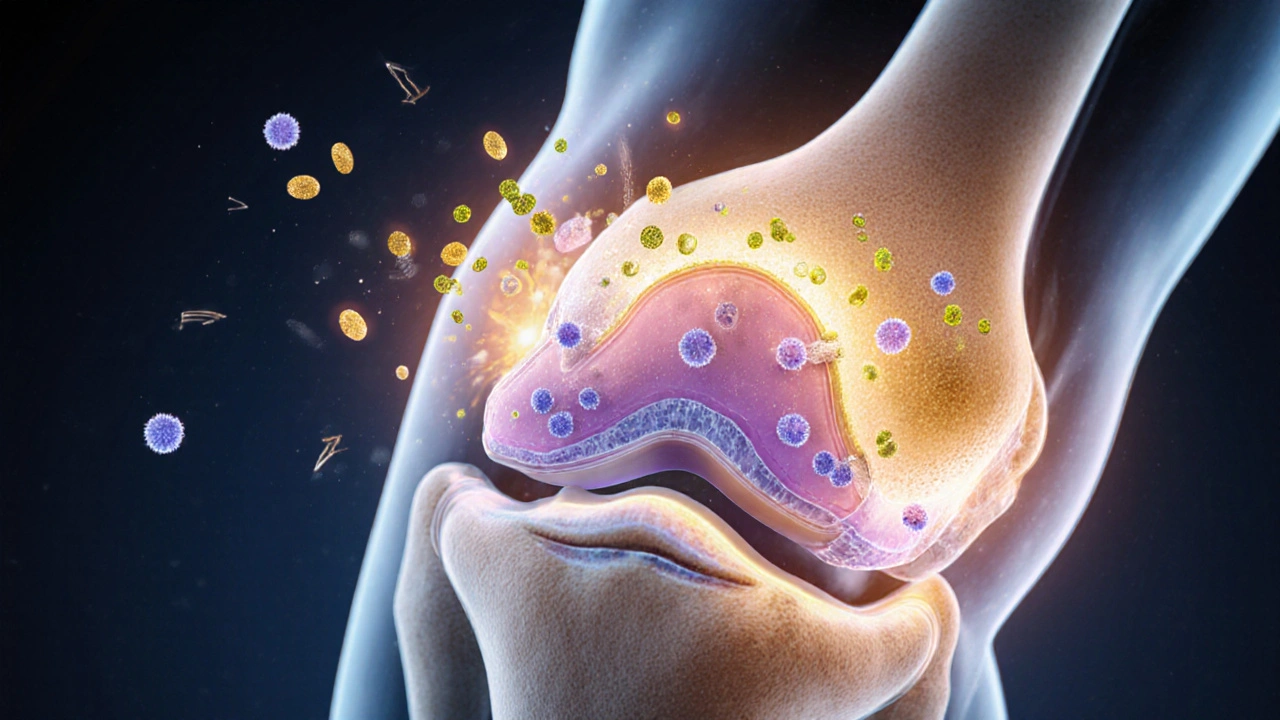
Inflammation, Cortisol, and Nighttime Recovery
When sleep is fragmented, the body’s stress hormone cortisol a glucocorticoid that spikes in response to stress and can promote inflammation spikes early in the night and stays elevated. High cortisol suppresses the anti‑inflammatory cytokine IL‑10 and encourages pro‑inflammatory cytokines like IL‑6 and TNF‑α. Elevated IL‑6 has been linked to increased cartilage degradation in early‑stage osteoarthritis.
Conversely, well‑structured sleep lowers baseline cortisol and allows the immune system to shift into a reparative mode. Researchers at the University of Sydney (2022) observed that participants who averaged 8 hours of sleep had 30% lower serum IL‑6 compared to those who slept 5 hours, correlating with better knee joint comfort scores.
Consequences of Poor Sleep on Joints
Chronic sleep deprivation doesn’t just make you feel achy; it accelerates the very processes that lead to joint disease. Key risks include:
- Reduced cartilage synthesis - lower IGF‑1 and growth hormone slow matrix production.
- Increased inflammation - higher cortisol and cytokine levels erode cartilage over time.
- Altered synovial fluid composition - less lubrication leads to higher friction during movement.
- Heightened pain perception - sleep loss amplifies central pain pathways, making existing joint discomfort feel worse.
For athletes and older adults, the cumulative effect can shave years off joint longevity, pushing them closer to conditions like osteoarthritis a degenerative joint disease characterized by cartilage breakdown and bone remodeling.
Practical Tips for Better Sleep to Protect Joints
Improving sleep quality is a low‑cost, high‑impact strategy for joint preservation. Here are evidence‑backed actions you can adopt right now:
- Keep a consistent schedule. Going to bed and waking up at the same time trains your circadian rhythm the internal biological clock that regulates sleep‑wake cycles, ensuring you hit enough deep‑sleep cycles.
- Create a cool, dark bedroom. Temperatures around 18‑20°C (65‑68°F) and blackout curtains boost melatonin secretion.
- Limit screens 1 hour before bed. Blue light suppresses melatonin, delaying onset of sleep.
- Incorporate light stretching or yoga. Gentle movement increases synovial fluid circulation without triggering inflammatory stress.
- Watch caffeine and alcohol. Both can fragment REM and deep‑sleep stages, reducing hormone release.
- Screen for sleep apnea. If you snore loudly or feel unrefreshed after a full night, a medical evaluation can uncover breathing interruptions that sabotage joint recovery.
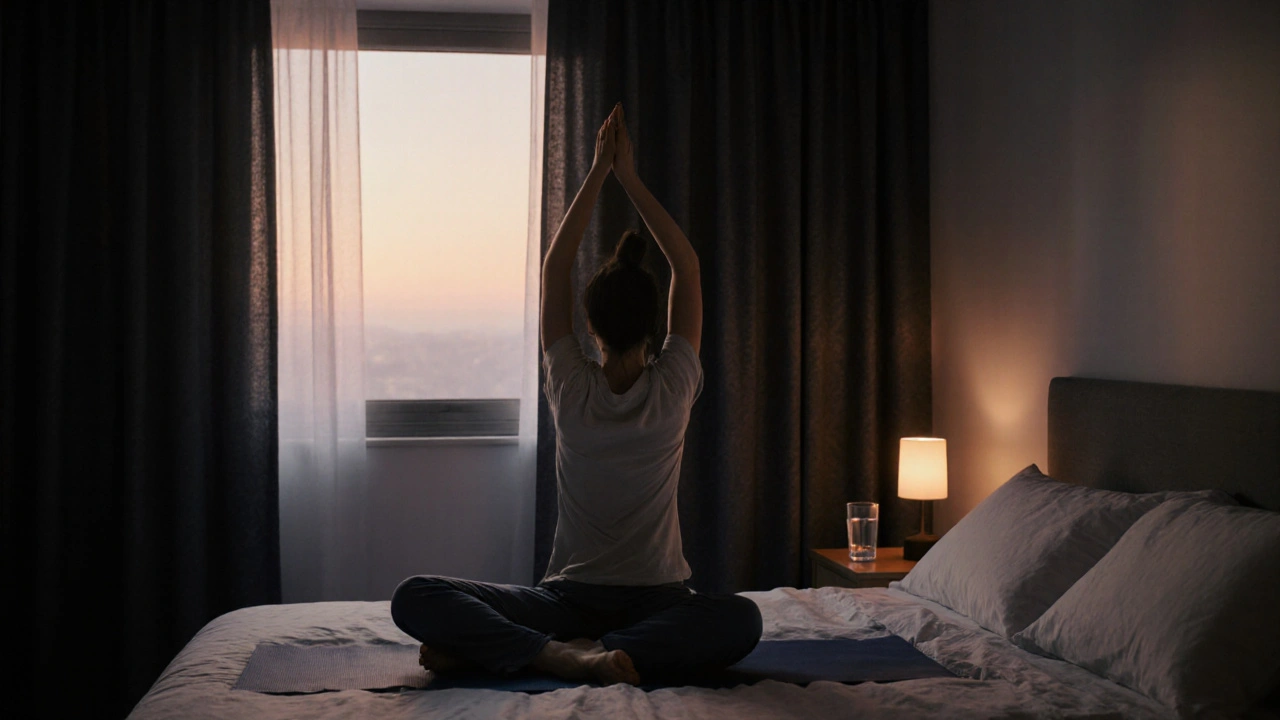
Sleep Quantity vs Joint Health Outcomes
| Average Sleep Hours/Night | IGF‑1 Level (ng/mL) | Serum IL‑6 (pg/mL) | Self‑Reported Joint Pain (0‑10) |
|---|---|---|---|
| 5-6 | 84 | 12.4 | 6.8 |
| 7-8 | 112 | 7.1 | 3.2 |
| 9+ | 119 | 5.9 | 2.7 |
The data make it clear: each extra hour of sleep above the five‑hour baseline brings measurable benefits to cartilage‑supporting hormones and cuts inflammatory markers, translating into less perceived joint pain.
Next Steps and Troubleshooting
If you’ve tried the basics and still wake up stiff, consider these deeper dives:
- Sleep Tracker Review. Use a wearable or smartphone app to confirm you’re hitting at least two full 90‑minute sleep cycles.
- Professional Assessment. A physiatrist can evaluate joint alignment; a sleep specialist can run a polysomnography for undiagnosed apnea.
- Targeted Supplements. Magnesium glycinate or low‑dose melatonin (0.5mg) can smooth the transition into deep sleep, but discuss with a doctor first.
Remember, joint health is a marathon, not a sprint. Consistently prioritising quality sleep stacks up protective benefits day after day.
Frequently Asked Questions
Can I repair damaged cartilage just by sleeping more?
Sleep boosts the hormones that aid cartilage synthesis, but it can’t fully reverse severe loss. It slows further degeneration and supports any rehab program you follow.
How many hours of sleep are optimal for joint health?
Research points to 7‑9 hours per night as the sweet spot for hormone balance and inflammation control.
Is napping harmful to my joints?
Brief naps (under 30 minutes) can be refreshing and don’t disrupt nighttime deep sleep. Long afternoon naps may shift your circadian rhythm, reducing deep‑sleep quality later.
Do sleep disorders increase the risk of osteoarthritis?
Yes. Chronic sleep apnea raises systemic inflammation and cortisol, both of which accelerate cartilage wear. Treating apnea often improves joint pain scores.
Can melatonin supplements help my joints?
Low‑dose melatonin can improve sleep onset and provide antioxidant benefits to joint tissue, but it’s not a cure‑all. Use it under medical guidance.

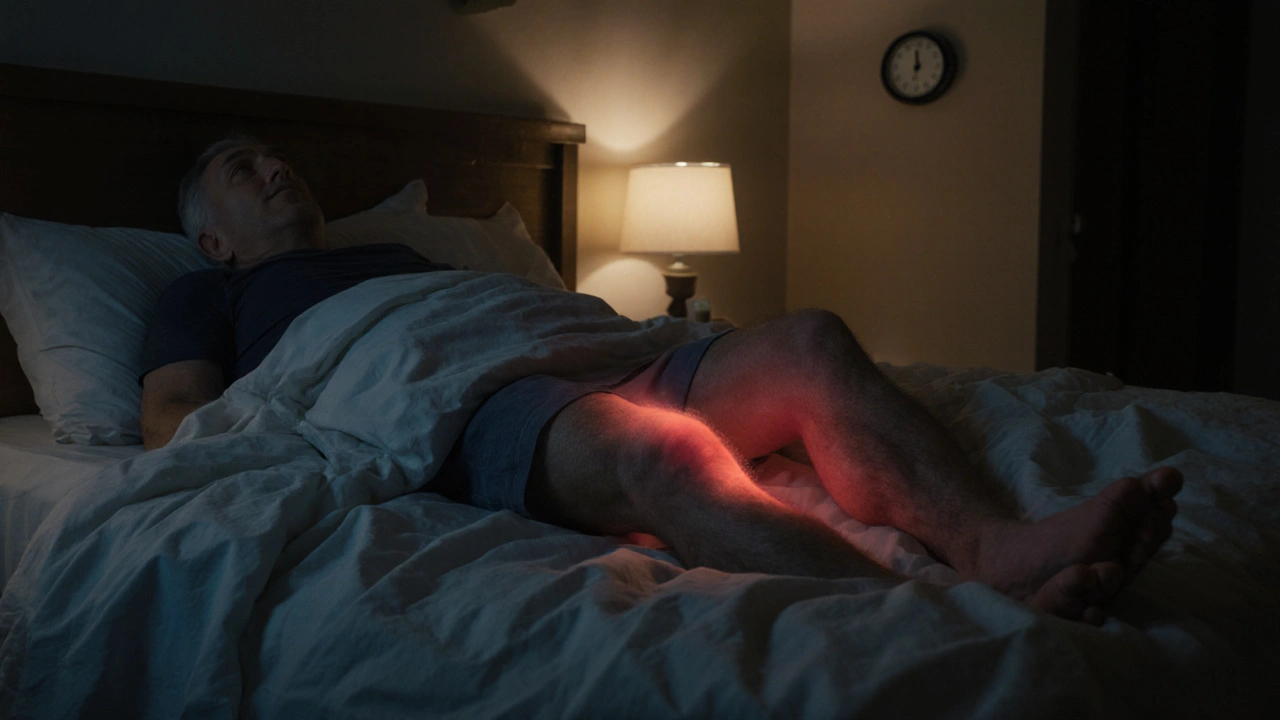
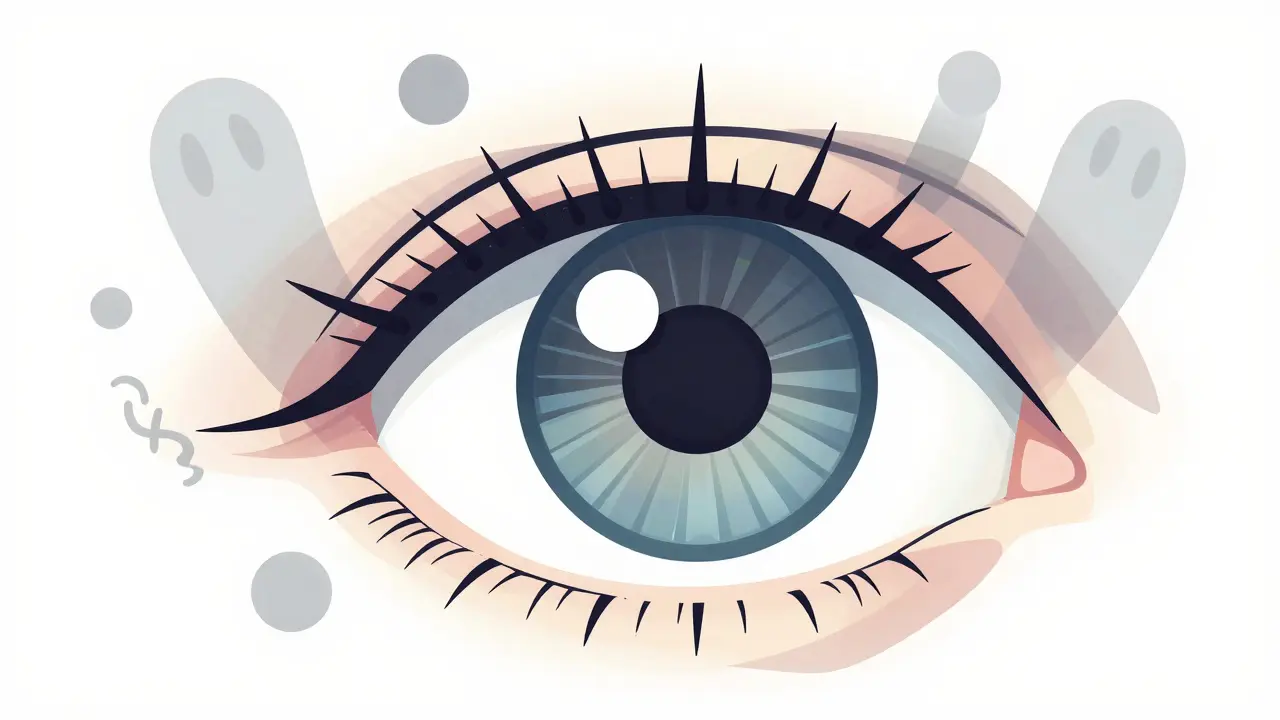


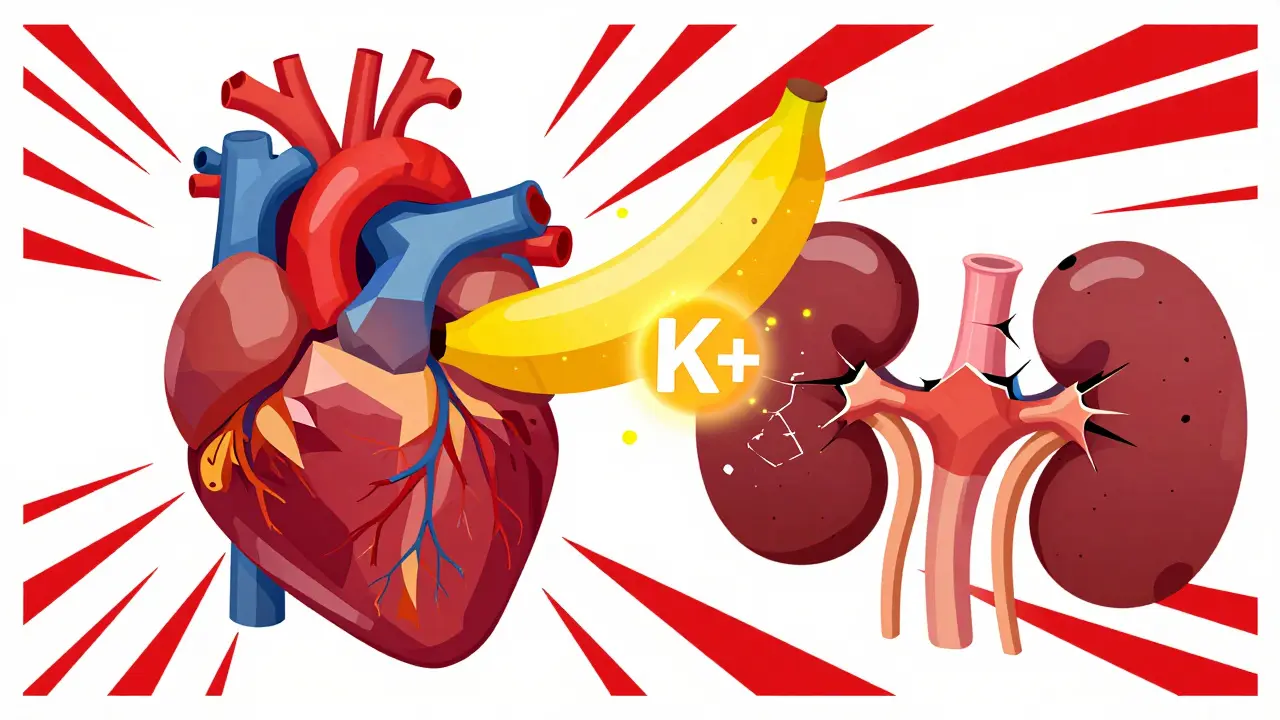

Patrick Nguyen
October 14, 2025 AT 16:15IGF‑1 spikes during deep sleep, which is why those extra REM cycles matter.
Patrick Bread
October 14, 2025 AT 23:11Obviously, we all know that sleeping eight hours is the gold standard-unless you enjoy creaky knees.
Christopher MORRISSEY
October 15, 2025 AT 06:08Sleep has long been recognized as a cornerstone of musculoskeletal health, yet many still dismiss its importance in favor of quick fixes. Research consistently shows that deep, uninterrupted sleep facilitates the secretion of growth factors such as IGF‑1, which are essential for cartilage repair and synthesis. During the slow‑wave phase, the body experiences a surge in anabolic hormones while catabolic cytokines like IL‑6 are suppressed, creating a favorable environment for joint tissue regeneration. Conversely, chronic sleep deprivation elevates systemic inflammation, as evidenced by persistently high IL‑6 levels, which accelerate cartilage breakdown. The interplay between hormonal balance and inflammatory mediators underscores why nocturnal rest is not merely restorative but reparative. Moreover, adequate sleep improves pain thresholds; individuals who obtain the recommended 7‑9 hours report lower joint pain scores compared to their sleep‑deprived counterparts. This analgesic effect is mediated by the modulation of central pain pathways and reduced peripheral sensitization. The ergonomic implications are profound: athletes, seniors, and anyone with chronic joint conditions stand to benefit from prioritizing sleep hygiene. Simple interventions-consistent bedtime, a dark environment, and limited screen exposure-can dramatically enhance sleep quality. In addition, timing of nutrient intake matters; protein‑rich meals before sleep support overnight muscle and cartilage repair. While supplements like glucosamine may aid joint health, they cannot compensate for the restorative power of natural sleep cycles. It is also worth noting that sleep architecture changes with age, necessitating tailored strategies for older adults to achieve optimal deep‑sleep percentages. Ultimately, the evidence converges on a single message: neglecting sleep jeopardizes joint integrity, whereas embracing it safeguards mobility. Therefore, incorporate sleep as a non‑negotiable pillar in any joint‑health regimen. The bottom line is clear-if you care about your knees, hips, and spine, make sure you get enough quality shut‑eye each night.
Alex EL Shaar
October 15, 2025 AT 06:10Yo, the data's kinda obvious – less snooze, more creak.
Don't be a knuckle‑head, just hit the pillow.
Seriously, even your grandma knows that.
Anna Frerker
October 15, 2025 AT 13:06Sleep matter for joints, no doubt, but who has time?
Alexandre Baril
October 15, 2025 AT 13:08Getting enough sleep gives your body the chance to produce the hormones that rebuild cartilage. Simple habit, big payoff.
Stephen Davis
October 15, 2025 AT 20:05Honestly, if you think skipping a couple of hours won’t affect your knees, you’re dreaming. Sleep is the silent healer that keeps the joints lubricated and the inflammation at bay.
Veronica Lucia
October 15, 2025 AT 20:06When we respect our bodies’ need for rest, we also honor the natural rhythms that protect our joints. A balanced sleep routine is a quiet act of self‑compassion.
Ariel Munoz
October 15, 2025 AT 20:08While some may scoff at the notion that a good night’s sleep can prevent joint degeneration, the science is unforgiving-ignoring it is tantamount to neglecting our nation’s health. The inflammatory cascade that awakens in the dark hours of insomnia is a silent enemy, eroding cartilage with the same relentlessness that critics apply to foreign policies they disdain. In short, if we champion strength on the global stage, we must first fortify the very joints that carry us there.
Ryan Hlavaty
October 16, 2025 AT 03:05It’s a moral imperative to treat our bodies with the respect they deserve; skipping sleep is a betrayal of that duty.
Ben Wyatt
October 16, 2025 AT 03:06Stay upbeat! Prioritizing 7‑9 hours of quality sleep can be a game‑changer for joint comfort and overall well‑being.
Donna Oberg
October 16, 2025 AT 10:03Sleep better, joints thank you.
Garreth Collard
October 16, 2025 AT 17:00One could argue that the poetic silence of night is the most refined therapist we possess, coaxing our joints back to harmony.
Daniel LaMontagne
October 16, 2025 AT 17:01Totally agree! 😴💪 Getting enough shut‑eye really does wonders for the knees. Keep the pillows comfy! 🌙
Ellie Chung
October 16, 2025 AT 23:58Let’s cut to the chase: if you’re still debating the value of sleep, you’re missing the forest for the trees. Sleep is the ultimate joint‑preserving hack-no more excuses.
Sophia Simone
October 17, 2025 AT 00:00While the prevailing narrative glorifies hustle, a rigorous examination reveals that chronic sleep deprivation is a covert catalyst for musculoskeletal decline. Thus, any claim that glorifies sleeplessness must be rigorously contested.
Juan Sarmiento
October 17, 2025 AT 06:56Remember, every night you give your body the chance to repair, and your joints will thank you with smoother moves tomorrow. Keep it up!